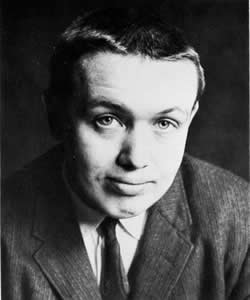Цитата Сантьяго Калатравы
Я стал фанатиком архитектуры Ле Корбюзье, посетил почти все его здания и прочитал все его книги. Только позже я обнаружил, что все, что произвело на меня впечатление в его книгах, особенно его идеология, он почерпнул у Огюста Перре.
Связанные цитаты
Есть три безошибочных способа доставить удовольствие автору, и эти три образуют восходящую шкалу комплиментов: 1 — сказать ему, что вы прочитали одну из его книг; 2, сказать ему, что вы прочитали все его книги; 3, чтобы попросить его позволить вам прочитать рукопись его будущей книги. № 1 признает вас в своем уважении; № 2 признает вас в своем восхищении; № 3 несет вас прямо в его сердце.
Я начал читать книги и прочее, и, по сути, один из тех, кто заставил меня серьезно задуматься, был атеистом, о котором я, еще один заключенный-негр, которого я слышал в беседе с белыми заключенными и который был в состоянии постоять за себя. на всех уровнях. И он поразил меня своими знаниями, и я стал очень внимательно слушать некоторые вещи, которые он говорил.
Он поднес книгу к носу. Пахло тальком Old Spice. Книги, которые пахли таким образом, обычно было весело читать. Он бросил книгу на кровать и подошел к чемодану. Покопавшись некоторое время, он нашел длинную узкую коробку мятных конфет в шоколаде. Он любил есть конфеты во время чтения, и у многих его любимых книг дома были коричневые пятна на углах страниц.
У Авраама Линкольна действительно были интеллектуальные инстинкты, огромное любопытство по широкому кругу вопросов и почти фотографическая память на то, что он читал. В конце концов, он был политиком: политика была его раем, сказал Уильям Херндон. Но Линкольн находил утешение в идеях и книгах больше, чем любой другой президент, и в моменты замешательства он обращался к книгам и идеям, чтобы разобраться во всем. Философ, нет, но вдумчивый и "удивительно начитанный" для своего времени.
Его книги были частью его самого. Казалось, что с каждым годом его жизни книги все больше и больше становились его частью. В этой комнате, тридцать на двадцать футов, со стенами, заставленными книгами, слышался ропот множества голосов. В книгах Геродота, Тацита, Рабле, Томаса Брауна, Джона Мильтона и множества других он находил людей с лицом и голосом более реальными для себя, чем многие люди, которых он встречал, чтобы покурить и побеседовать.
Сэмюэл Беккет — человек, которого я читаю больше всего, и, безусловно, человек, книги которого у меня больше всего. Вероятно, 800 или 900, может быть, 1000 книг только Сэмюэля Беккета. Им, о нем, на разных языках и т.д. и т.п. Тетради его, письма его, которыми я владею, личные письма - не ко мне, но я купил кучу его корреспонденции. Мне нравится его юмор, и я всегда поражен его синтаксисом и его идеями. Поэтому я продолжаю читать их.
Убей меня, Дуг. Просто убей меня сейчас. Избавь меня от моих страданий». — Господи, Кинкейд, что ты ему сказал? — пробормотал Дуг. «Ну, — сказал я Дугу, — я раскритиковал его фанатов и то, сколько времени уходит на то, чтобы выйти его книги». Дуг уставился на меня, его ожидания превзошли все ожидания. «Тогда я сказал — не зная, кто он такой, — что буду любовным рабом Сета Мортенсена в обмен на продвинутые экземпляры его книг.
Человека узнают по книгам, которые он читает, по компании, которую он держит, по похвалам, которые он произносит, по его одежде, по его вкусам, по его отвращениям, по историям, которые он рассказывает, по его походке, по представлению о его взгляде. , по виду его дома, его комнаты; ибо на земле нет ничего одинокого, но все имеет бесконечное сродство.
Голова у него кружилась, и он не был уверен даже в том, в каком направлении они двигались, когда он упал. Он догадывался, насколько мог, и полз довольно долго, пока вдруг его рука не наткнулась на что-то похожее на крошечное кольцо из холодного металла, лежащее на полу туннеля. Это был поворотный момент в его карьере, но он этого не знал. Он почти не задумываясь положил кольцо в карман; конечно, в данный момент он не казался каким-то особенным.






































